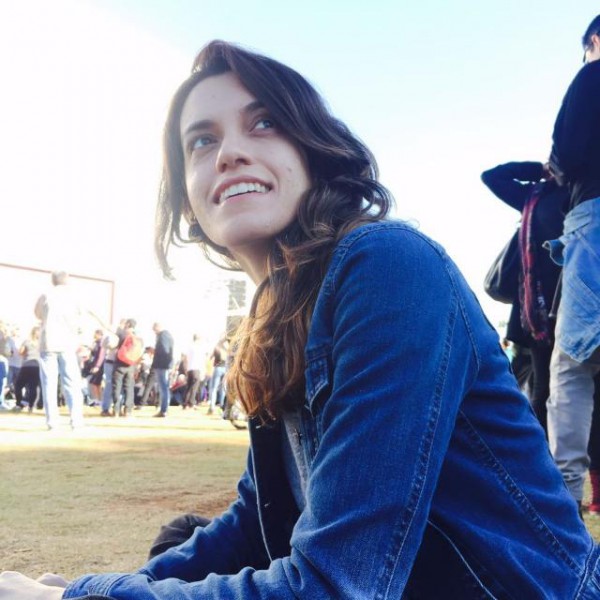Daiane Damasceno Borges
Interview by Carey Sargent, EPFL, NCCR MARVEL
The biggest challenge women scientists face is...
The biggest challenge for me as a woman was, definitely, to feel confident, to feel that I could be as good as any man. Especially, at the beginning of my university studies, we were few women with a vast majority of men in a culture where gender equality was not as good as it is in Europe. So, when we are in an environment full of discrimination and lack of women’s representation in science, we risk ending up doubting about our own capacity and if science was indeed for women. Overcoming these false beliefs was the main challenge for me. My experience in Europe helps me enormously. Here I could find many references, many women that inspire me to keep in science.

I chose a scientific career because…
I have one elder brother who is physicist as well and, when I was young, he used to do physics experiments very often at home. I was always very excited about it and about the scientific discussions my brothers and me used to have —it was a big part of my childhood. I was pretty sure I wanted to be a scientist when I was quite young. I wanted to be an astronomer after reading ‘The Universe in a nutshell’ of Stephen Hawking, but for that, I would have to move from my city. I also thought about studying mathematics. I think I chose physics though because I was influenced by my brother.
If I weren’t a scientist, I would be…
I would be a musician. I studied classical guitar for a couple of years when I graduated from the music course at the Uberlândia Conservatory. At that time, I thought about being a professional classical guitar player, but…I wasn’t sure.
What is your greatest MARVEL discovery to date?
I think my greatest discovery in MARVEL is the computational infrastructure that they are developing. They are building an open science platform that taught me a new way to manage my calculations and to deal with material data. The MARVEL team has an innovative and ambitious way to deal with science that impresses me. They aim not only to have great discoveries but also to create a robust and sharable knowledge. In my opinion, this is the most important.
My top two papers...
Well.. difficult question… I like the one from the Berend Smit group called "The materials genome in action: identifying the performance limits for methane storage". It gives a very interesting example of how big-data can accelerate material discovery. To cite a second top paper, I like the recent paper of Prof. Omar Farha in Journal of the American Chemical Society in 2018. They used a metal-organic framework to encapsulate insulin to protect the drug from stomach acid attacks. It’s a beautiful work and inspires me to keep working in these materials.
